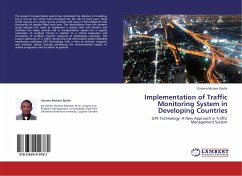
Understanding Public Management Reforms in Developing Countries
The case of Peru
Versandkostenfrei!
Versandfertig in 6-10 Tagen
36,99 €
inkl. MwSt.

PAYBACK Punkte
18 °P sammeln!
Starting from the 1980s, both Western Democracies and developing countries found the reforms irresistible. However, most developing countries replicated NPM-style reforms, with contrasting results. Actually, they did not reflected on the importance of the context in the designing and the implementation phases of public management reforms. The book highlights that several factors influence reforms and it presents a model for understanding public management reforms in developing countries. The model considers how socio-economic, political and administrative variables may influence different phas...
Starting from the 1980s, both Western Democracies and developing countries found the reforms irresistible. However, most developing countries replicated NPM-style reforms, with contrasting results. Actually, they did not reflected on the importance of the context in the designing and the implementation phases of public management reforms. The book highlights that several factors influence reforms and it presents a model for understanding public management reforms in developing countries. The model considers how socio-economic, political and administrative variables may influence different phases of public management reforms in developing countries. The model also takes into account the external pressures that developing countries face, by analyzing the role of the International Aid System. Hereafter, the book presents how the model has been tested to the case of Peru, by emphasizing the influence of each variable on the designing and implementation of the reform packages in Peru.Specifically, the book concentrates on two case studies: the decentralization reform and the Civil Service reform in Peru.












